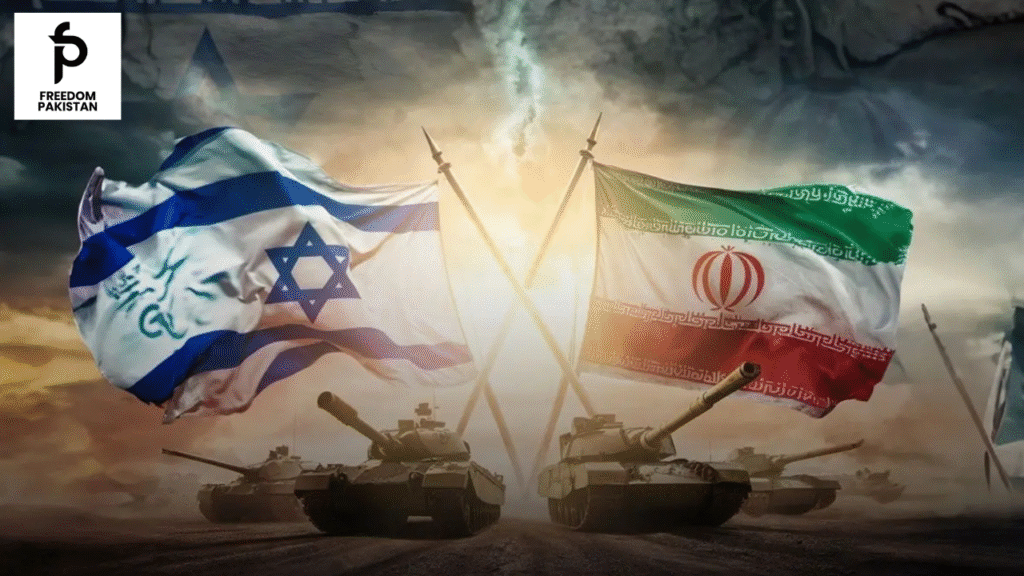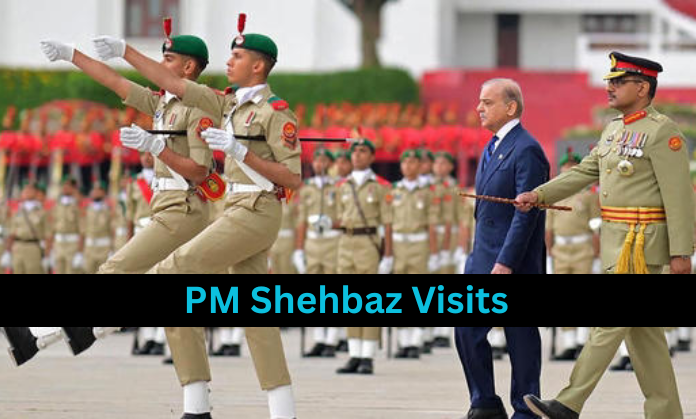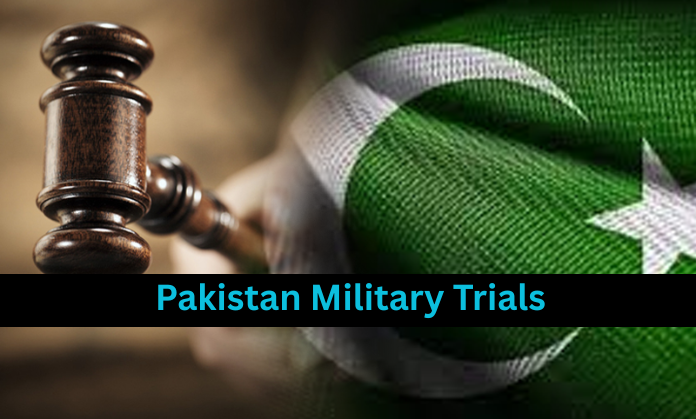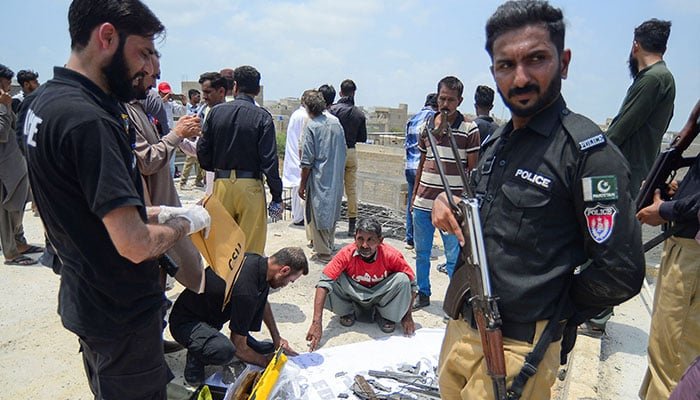Iran and Israel have long been a cornerstone of Middle Eastern geopolitics. The rivalry is driven by ideological, religious, political, and strategic factors. While both nations have never officially declared war on each other, they’ve engaged in covert operations, cyber warfare, and proxy battles across the region. As global powers continue to take sides, the question arises: If a direct war breaks out between Iran and Israel, which country has more power to win?
In this article, we’ll compare Iran and Israel across military capabilities, technological advancement, regional influence, intelligence services, and international support to help understand who would hold the upper hand in such a high-stakes conflict.
1. Military Strength Comparison
Armed Forces and Personnel
Iran maintains one of the largest standing armies in the region, with over 610,000 active personnel and about 350,000 in reserve. The Iranian military is divided between the regular army and the elite Islamic Revolutionary Guard Corps (IRGC), a powerful force with its own navy, air force, and intelligence units.
In contrast, Israel has about 170,000 active-duty soldiers and 460,000 reservists, thanks to its mandatory conscription system. While smaller in size, Israel’s military is highly trained, well-equipped, and battle-experienced.
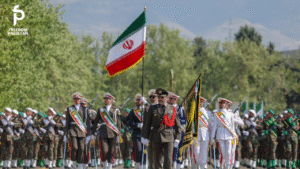
Weapons and Equipment
Israel possesses a technologically advanced arsenal, including F-35 stealth fighters, precision-guided missiles, armed drones, and advanced artillery. It is also home to the Iron Dome, David’s Sling, and Arrow air defence systems, widely considered among the most effective in the world.
Iran, despite years of sanctions, has developed a substantial domestic military industry. Its missile arsenal is one of the largest in the Middle East, including Shahab and Fateh series ballistic missiles, some capable of reaching deep into Israeli territory. However, Iran’s air force and defence systems are ageing and less capable than Israel’s.
2. Nuclear Capabilities
While Israel has never officially confirmed having nuclear weapons, it is widely believed to possess around 80–90 nuclear warheads and delivery systems, giving it a significant strategic advantage.
Iran, on the other hand, is a non-nuclear-weapon state under the NPT (Non-Proliferation Treaty) but has enriched uranium beyond JCPOA limits. While not yet a nuclear power, Iran’s potential to develop nuclear weapons remains a major global concern.
In any future conflict, Israel’s nuclear deterrent—whether declared or undeclared—would weigh heavily on strategic calculations.
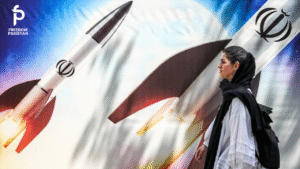
3. Cyber Warfare and Intelligence
Israel is considered one of the world leaders in cyber warfare. Its intelligence agencies, especially Mossad and Unit 8200, have conducted high-profile cyber operations like the Stuxnet virus, which disrupted Iran’s nuclear program.
Iran has invested heavily in cyber capabilities through the IRGC, launching multiple attacks on Israeli infrastructure and attempting to influence political discourse.
Still, Israel’s cyber security infrastructure and offensive capabilities are seen as more sophisticated and globally effective, giving it an upper hand in digital warfare.
4. Regional Influence and Proxy Network
Iran’s real strength lies in its network of regional allies and proxies. These include:
-
Hezbollah in Lebanon
-
Houthis in Yemen
-
Shiite militias in Iraq and Syria
-
Hamas and Islamic Jihad in Gaza
These groups can launch attacks on Israeli targets without triggering direct retaliation against Iran. This proxy model allows Iran to wage war by proxy, stretching Israeli defences across multiple fronts.
Israel, while not having a proxy network, maintains strong ties with Egypt, Jordan, Azerbaijan, the UAE, and Bahrain (via the Abraham Accords), enhancing its diplomatic reach and regional intelligence.
5. Air Defence and Strike Power
Israel’s Iron Dome system has a remarkable success rate in intercepting short-range rockets and missiles. It also fields long-range systems like David’s Sling and Arrow-3 to defend against ballistic missile threats. Combined with F-35 stealth fighters and accurate long-range missiles, Israel’s strike capabilities are superior.
Iran has a growing missile program, with hundreds of short and medium-range missiles that could overwhelm Israeli defences in a saturation attack. However, its air defence systems and air force remain less advanced and vulnerable to Israeli airstrikes.
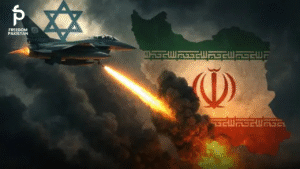
6. International Alliances and Support
Israel enjoys strong support from the United States, which provides over $3.8 billion in annual military aid, intelligence sharing, and advanced weapon systems. In a war scenario, the U.S. and possibly NATO members would likely side with Israel diplomatically or even militarily.
Iran maintains strategic ties with Russia and China, though these alliances are more economic and political than military. Iran is largely isolated diplomatically, facing tough U.S. and international sanctions that weaken its economy and global reach.
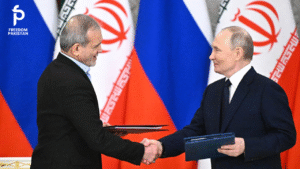
7. Economic and Logistical Capacity
Israel has a GDP of over $500 billion, powered by a strong tech industry, exports, and foreign investment. It can sustain long-term military operations with access to global markets and support.
Iran’s economy is heavily dependent on oil exports and has been crippled by sanctions. Though it has managed to stay afloat through alternate trade with China and smuggling networks, a prolonged war could severely impact its war fighting capacity.
8. Geography and War Scenario
Iran and Israel do not share borders, making a ground war unlikely. Iran would rely on proxy forces in Lebanon, Syria, Gaza, and Iraq to launch attacks, while Israel would carry out long-range airstrikes and covert operations.
Naval warfare in the Persian Gulf and Eastern Mediterranean could also emerge, with both countries possessing significant naval power in their respective regions.
9. Historical Conflicts and Covert Actions
Israel has previously carried out airstrikes in Syria, assassinations of Iranian scientists, and cyber attacks targeting nuclear facilities. Iran has responded with missile attacks on U.S. bases in Iraq, drone strikes, and supporting insurgent movements.
These confrontations show a pattern of shadow war that could escalate into a larger conflict if diplomatic channels fail.
10. Global Impact and Expert Views
Military experts largely agree that Israel has a clear edge in terms of technology, defence systems, and alliances. However, Iran’s asymmetrical warfare tactics and proxy strategies could make a direct war prolonged and costly for both sides.

A full-scale Iran-Israel war would destabilise the Middle East, affect global oil prices, and could potentially draw in the U.S., Russia, and Gulf countries. The global economy and security situation would suffer tremendously.
Read Also:
Israel-Iran Conflict Escalates: Nuclear Sites Bombed, Middle East Braces for War
1. Does Israel have nuclear weapons?
Israel has never officially confirmed possessing nuclear weapons, but it is widely believed to have 80 to 90 nuclear warheads. These are considered a key part of its strategic deterrence against major threats, including Iran.
2. Is Iran capable of developing nuclear weapons?
Iran is a non-nuclear-weapon state under the Nuclear Non-Proliferation Treaty (NPT). However, its uranium enrichment program has raised concerns that it could potentially build a nuclear weapon if it chooses to abandon international agreements like the JCPOA.
3. Who has a larger military force, Iran or Israel?
Iran has a larger standing army, with over 600,000 active troops and additional reserves. Israel’s active military is smaller but is considered more advanced and better equipped, with strong training and high readiness levels.
4. Which country has better air defence systems?
Israel leads in air defence technology. Its systems like the Iron Dome, David’s Sling, and Arrow-3 are among the best in the world. These systems can intercept both short-range rockets and long-range ballistic missiles.
5. Can Iran defeat Israel in a full-scale war?
A full-scale war would be devastating for both nations. While Israel has superior technology, intelligence, and Western support, Iran has a strong missile program and powerful proxy network. Iran may not be able to defeat Israel militarily but could prolong conflict through indirect attacks.
6. What are Iran’s main military strengths?
Iran’s strengths include:
-
A large arsenal of ballistic missiles
-
Strong influence over proxy groups like Hezbollah and the Houthis
-
A vast and experienced military force
-
A growing cyber warfare program
7. What makes Israel militarily superior?
Israel’s superiority comes from:
-
Advanced fighter jets like the F-35
-
World-class cyber and intelligence units
-
Powerful allies like the United States
-
Modern defence systems and real-time battlefield technology

